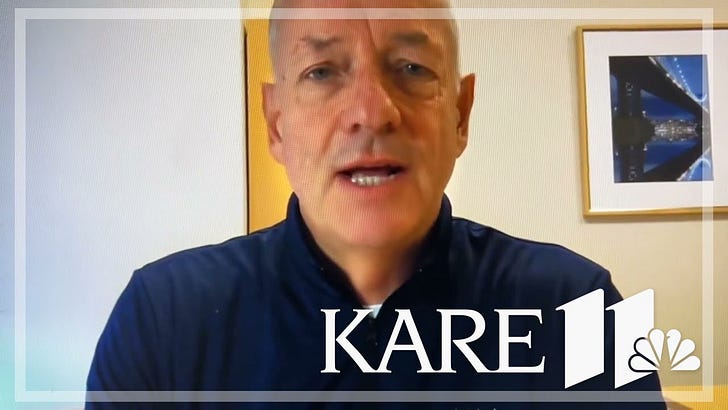"Every civilization carries the seeds of its own destruction, and the same cycle shows in them all. The Republic is born, flourishes, decays into plutocracy, and is captured by the shoemaker whom the mercenaries and millionaires make into a king." -Mark Twain
People in the U.S. are presently pre-occupied with a pair of unsolved mysteries, which may be, in some manner, connected. The most recent is the murder of the United Health Care CEO in New York City by a man, who, as of this writing, has not been identified or arrested. The other confounding mystery is how Donald Trump defeated Kamala Harris in the just concluded presidential election. Neither, of course, occurred in any kind of cultural or economic vacuum. In fact, the mysterious killing in Manhattan might have been an outgrowth of the election results and the persistent hopelessness too many millions of Americans feel in their lives, politics, and the economy, which more efficiently serves the wealthy, and not the worker or consumer.
Perhaps it is far-fetched, but it’s easy to suppose the health care killer was clinging to one last hope. What if he, or members of his family, had been trying to get coverage of a fatal disease for someone they loved, and were persistently denied? Historian Heather Cox Richardson recently referenced a lawsuit against UnitedHealth by the families of two deceased patients who had been denied coverage. According to the pleadings in the case, United deploys an algorithm that has a 90 percent failure rate assessing claims. There is great profit in the technology’s flaws because United executives realized, according to the lawsuit, that only 0.2 percent of policy holders ever appeal their claims. The company has created an environment of hopelessness. The technique is part of why UnitedHealth is the eighth largest corporation in the world with a market cap of $560 billion, and the division, which was headed by the murdered CEO Brian Thompson, is forecasted to generate $280 billion in 2024 revenue.
Consider that the killer was possibly holding onto a notion a Harris presidency might address inequities in health care and the economy. The Democratic candidate did not make health care reform a central plank of her candidacy, though, probably because big pharma, insurance companies, and health care providers are major donors to Republican and Democratic candidates. There are always better odds, however, that progressive thinkers might work to change the system that delivers the most expensive health care in the world. Outcomes in the American structure are profoundly affected by a lack of universal coverage, minimal regulation of pricing compared to other developed countries, and a heavy reliance on for-profit insurance companies and care providers.
The U.S. construct is unique among civilized nations with advanced economies, and it consistently sacrifices people to make profit. In Texas, arguably the most politically influential of conservative states, 4.9 million citizens, 17 percent of the entire population, is uninsured, which is the worst rate in the nation. Eleven percent of this state’s children under the age of 19 are without insurance, a total approaching 900,000 kids, and a figure that is more than double the national average of 5.1 percent. Texas is the only state where the uninsured child rate is in double digits, in part, because elected officeholders refuse to expand Medicaid coverage for middle and low income families, even though the federal government pays 90 percent of the costs. Maybe healthy poor people are a risk to the political infrastructure in the Lone Star state. The population is either uninformed or without grievance because it has, for three decades, overwhelmingly elected Republican politicians who deny them health care.
There seems almost more understanding than shock over the health care CEO’s murder. One website reportedly had about 75,000 responses to the death that ridiculed the person and his company. There were lines like, “Thoughts and prayers denied,” or, “We are sorry your wound treatment is not covered because you did not get pre-approval for getting shot.” Estimates vary on how many Americans die each year from denial of coverage by their health care insurers but a figure frequently cited is around 70,000 people. Commenters across the internet suggest that number is far more offensive than snarky comments about the slain executive of UnitedHealth. The CEO of UnitedHealth’s parent company, Andrew Witty, called the aggressive news and social media coverage of the story, “Frankly offensive.” One person responded that the sarcastic reactions were, “Not as offensive as the AI-generated denials for essential healthcare that people pay their premiums for years to receive.”
"We guard against the pressures that exist...for unnecessary care," Witty added. United, however, appears most accomplished at denying almost all care since its error prone algorithm reportedly kicks back that 90 percent of claims, a rate reportedly three times higher than the rest of the industry. Such standards earned Witty $23.5 million dollars in annual salary. Social media and public commentary, unsurprisingly, was almost universally without sympathy for the victim of the assassin’s bullets and disregarded the fact that he was someone’s father, husband, son, and friend. According to data collected under the Affordable Care Act, in just one year, 2021, in the state of Arizona, UnitedHealth denied 39 percent of patient claims within the company’s own network. Why, one critic asked, did the company not expect violence given its track record of mistreatment of its own customers?
“When you shoot one man in the street it’s murder,” one person posted on the social media site X. “When you kill thousands of people in hospitals by taking away their ability to get treatment, you’re an entrepreneur.”
Thompson’s killer is a symptom of a larger cultural disease in the U.S. Millions of people have reached their limit of tolerance with corporate malfeasance and greed, the rich getting richer, the poor becoming poorer, and losing even the slightest influence they possess over their own economic fates. The “one percenters” have the money and control over our lives, and yet, as was just demonstrated in the recent election, they also get our votes. Americans have put a billionaire back in the oval office, a man who has been convicted 34 times for violating tax laws, filed for bankruptcy a half dozen times, and cuts cryptic deals and loans with foreign nationals who are not concerned with the best interests of Americans. Further, he is filling his cabinet with only billionaires to help guide and protect their interests over the nation’s.
No fortune tellers or palm readers are required to see what’s coming next. Regardless of how the public voted, the anger will grow as the wealthy take away social services to pay for tax cuts for, uh, the wealthy, and their corporations. Security expenses for the ultra wealthy and Trump team will be an increasing line item on budgets. American greed has been leading us in this direction with our blind belief that capitalism is flawless and that the only failures that exist here are people who just don’t try hard enough. It’s never America’s fault; it’s yours for not putting forth enough effort. Pull yourself up by your boots, and if you are too poor to own boots, we can’t help you. Looks like you are stuck in the ditch. This country’s greatest myth is that there are only two kinds of citizens: Millionaires and those who are convinced they will soon become millionaires. Maybe that’s why so many of us tolerate our culture’s deep disparities of wealth. I do not know.
But I do know that something dangerous as hell is afoot.






I am retiring at the end of the month. I am a Nurse Care Manager for adults with multiple chronic illnesses, helping them navigate an increasingly complex healthcare environment. And by increasingly complex I mean more stacked against the patient. Medicare Advantage programs are horrible and UHC is the worst. Too many stories. People go into medicine/ healthcare because they care about people- I can tell you I have not heard any words of sympathy this week for the CEO in the halls where I work. Where is it all going? I don’t know. I know real reform needs to occur in health care. Does it take a CEO or an Archduke being assassinated to light that fire? If not, what does it take?
What I’ve wondered about voters, especially Texas voters, for years! They bitch and moan about taxes and then turn around and vote for people who only cut their services, but they buy the retoric. And god forbid a state income tax that really would lower taxes for the majority while the wealthy would have to actually pitch in.